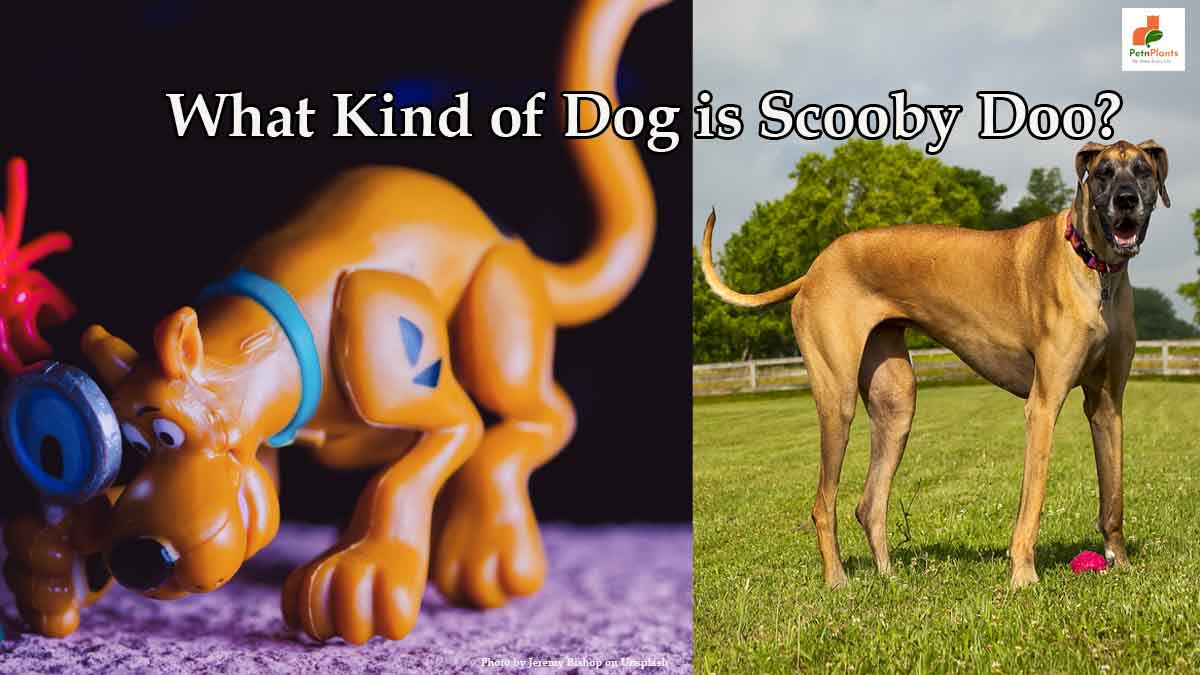Latest
Pets
Plants
How Indoor Plants Can Affect Pet Behavior, Stress & HealthJanuary 12, 2026
We Value Every Life

We’ve all grown up with Scooby-Doo and his iconic group of friends. We’ve laughed at their adventures, cheered them on, and gone along for the ride. But what kind of dog is Scooby Doo? The answer may surprise you! Though Scooby Doo looks like a typical Great Dane – tall, powerful, and enthusiastic – there are some subtle differences between him and other members of his breed. This post will explore these differences and learn more about our beloved four-legged friend. So let’s get started – who knows how much you’ll learn about Scooby Doo?
Scooby Doo is a Great Dane, with few differences between him and other breed members. Great Danes are one of the largest breeds of dogs, and they are known for their gentle giant personalities. They are loyal and protective of their families and make great companions. Scooby Doo is no different from other Great Danes in these respects. However, a few things set him apart from his canine counterparts. For one, Scooby Doo can talk! He can also solve mysteries, which most dogs are not known for. Additionally, Scooby-Doo loves to eat food (especially snacks), whereas most dogs prefer meatier fare. Scooby Doo is a typical Great Dane with a few unique quirks that make him special.
Regarding family-friendly dogs, Scooby-Doo is one of the best breeds around. Great Danes are known as gentle giants, and Scooby is no exception. He’s loyal, loving, and always ready for a good cuddle. Plus, his goofy personality is sure to keep everyone entertained.
Scooby is also a great choice for families with kids. He’s patient and tolerant, two qualities that are essential when it comes to dealing with little ones. And although he’s a big dog, he’s quite gentle and easily trained. So if you’re looking for a family-friendly breed that will make everyone happy, Scooby-Doo is perfect.
Assuming you are asking about the differences between the character Scooby-Doo and a real-life Great Dane, there are not too many. Scooby is an anthropomorphic dog, meaning he has human characteristics like the ability to talk. He can also drive a van, which we have not seen a real Great Dane does. Additionally, Scooby typically wears a collar and leash, while his canine companions do not. Finally, Scooby likes to eat snacks like Snacks, while most Great Danes prefer kibble or dog treats.
When training your Scooby Doo, the best approach is positive reinforcement. This means rewarding your dog for good behavior with treats, praise, or both. Avoid using punishment, as this can only lead to negative associations and make training more difficult.
Start by teaching basic commands such as sit, stay, come, and down. Once your Scooby Doo has mastered these commands, you can move on to more advanced tricks or behaviors. However, keeping training sessions short and sweet is important to maintain your dog’s attention and focus.
With patience and consistency, you can successfully train your Scooby Doo and create a bond that will last a lifetime.
Scooby Doo is a Great Dane who looks and acts like any other breed member. While he does have some differences from the average Great Dane, such as being able to talk, those things make him all the more special. He has been an iconic character for over five decades and continues to bring joy to children and adults alike with his adventures. Whether you are looking for a family pet or enjoy watching cartoons, chances are you have come across this beloved animal at least once in your life!
Pet N Plants, a passionate group of authors who are devoted pet and nature enthusiasts. With over 15 years of experience in pet and plant care, our authors bring a wealth of knowledge and a deep love for all things flora and fauna. Each member of our team is dedicated to sharing insightful tips, detailed care guides, and the latest trends to help you nurture your beloved pets and plants. Whether you're a seasoned gardener or a pet parent, our experts are here to support your journey in creating a thriving, vibrant home environment for all your living companions.
0